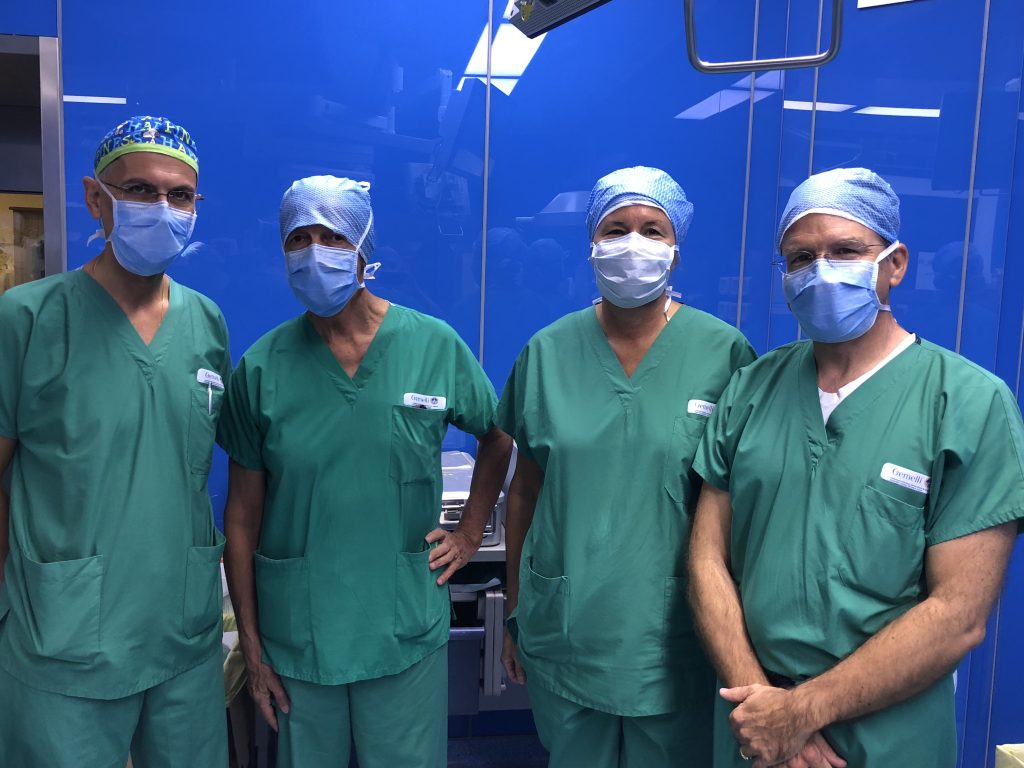The lives of eight families in three states have been transformed, and a local organization
created the link that made it possible. The non-profit Alliance for Paired Kidney Donation of Perrysburg connected a four-pair chain of living kidney donors and kidney patients in need of transplants. Procedures were recently completed at Piedmont Healthcare in Georgia, Wake Forest Baptist Health in North Carolina, and Barnabas Health Renal and Pancreas Transplant Division in New Jersey.
It all started with Kristen Corby of Wesley Chapel, North Carolina. Corby, who was born on Christmas, always felt she had a gift to offer the world. It wasn’t until kidney disease took a dramatic toll on her mother-in-law that she knew what that gift would be.
Corby explained to WBTV of Charlotte, North Carolina, that her mother-in-law was in need of a kidney transplant. “Both my husband, and my brother-in-law immediately went to see if they were a match, but they weren’t. I was tested, but I wasn’t a match either. Then I learned about this amazing ‘donor pairing’ program,”
That program is through the Alliance for Paired Kidney Donation. The APKD uses a specially-designed computer algorithm that matches willing, but incompatible, living kidney donors and recipients with other pairs that are suitable matches. The APKD successfully matched Corby with a compatible recipient, which led to three other successful matches and transplants, including that of Corby’s mother-in-law.
With more than 100,000 people in the United States waiting for a kidney transplant, there simply are not enough organs from deceased donors to meet demand. Paired donation makes it possible for living donors to help fill the need.
“Paired donation allows patients who otherwise would not have access to living donation a chance to receive a live donor kidney, which results in shorter wait times and significantly better long-term outcomes,” said Dr. Miguel Tan, surgical director of kidney and pancreas transplantation at Piedmont Transplant Institute, one of the transplant centers that was part of Corby’s chain.
Nadia Alassal is one of the recipients in the chain, and she received her transplant at Barnabas Health Renal and Pancreas Transplant Division in New Jersey. Alassal had less than a one percent chance of finding a compatible kidney.
“When they told me that I had a 99.9 percent match with the donor, I was so happy and felt so lucky,” she said. After years of medication, dialysis and complications, her life since receiving the transplant has been transformed. “I feel much, much better. No dialysis. No pain. This is a very big chance. It’s a new life.”
The three transplant centers involved in this particular chain average anywhere from 20 to 130 living transplants each year. Michael Rees, CEO and medical director of the APKD, hopes those numbers will continue to grow.
“For many patients, living with kidney disease can feel like a hopeless endeavor. While dialysis can help, it is difficult emotionally, financially and physically,” he said. “We know from studies that transplants give kidney patients a longer, higher quality life, especially transplants from living donors. As more people learn about the paired donation concept, our database will grow, more matches will follow, and more lives will be saved.”
The APKD has more than 70 participating transplant centers in 27 states, with more being added each month. Progress has helped change the way the world looks at kidney transplants, but there is more work to be done. To find out more about becoming a living kidney donor, receiving a transplant through paired donation, or supporting the APKD’s efforts to raise awareness and save lives, visit PairedDonation.org.

